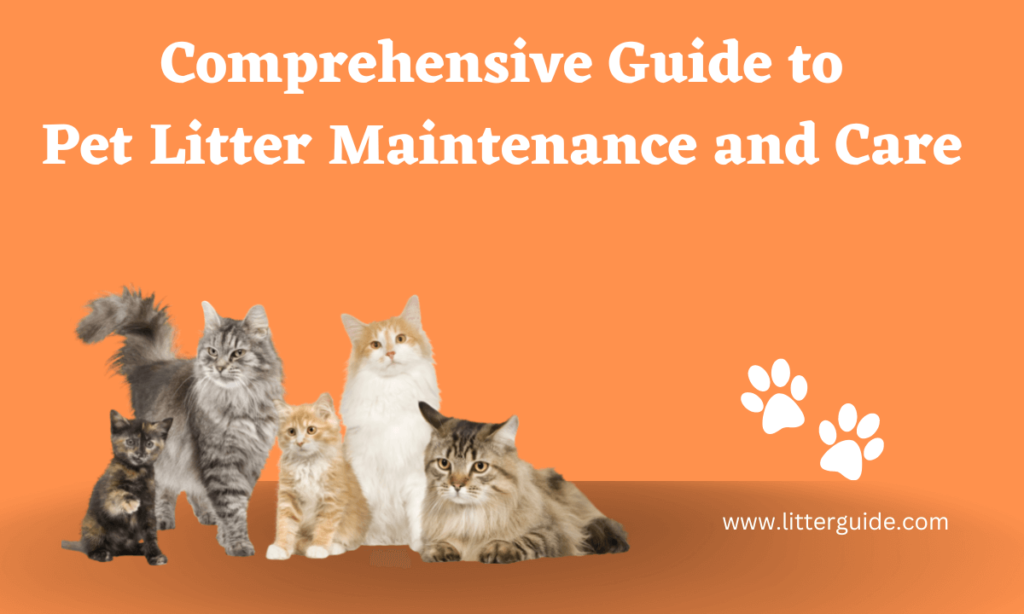Have you ever wondered what your curious cat might find in the fridge? Cats can be quite mischievous when it comes to exploring our food! But not everything in the fridge is safe for them to eat. In this blog post, we will talk about the foods that cats can enjoy from the fridge. Let’s make sure our furry friends stay happy, healthy, and well-fed!
Foods Cats Can Safely Eat from the Fridge: It’s important to give our cats a balanced diet that suits their needs. Here are some fridge foods that they can enjoy:
Cooked Meat and Fish:
Cats are obligate carnivores, which means their bodies are adapted to thrive on a diet primarily consisting of meat. Meat provides cats with essential nutrients and amino acids that are crucial for their overall health and well-being. When you offer your cat small pieces of cooked chicken or turkey without bones, you provide them with lean proteins that are easily digestible and help support their muscle development and maintenance.
The proteins found in meat are composed of amino acids, which are the building blocks of the body. Cats require specific amino acids, such as taurine and arginine, that are abundant in animal tissues. These amino acids play a vital role in various physiological processes, including proper heart function, healthy eyesight, and a strong immune system.
In addition to meat, fish can be a beneficial addition to your cat’s diet. Fish like salmon or tuna contain omega-3 fatty acids, such as EPA and DHA, which offer several health benefits for cats. Omega-3 fatty acids are known to promote healthy skin and a shiny coat. They also possess anti-inflammatory properties, which can be beneficial for cats with conditions such as arthritis or allergies.
However, it’s crucial to ensure that the fish is thoroughly cooked and doesn’t contain any bones. Bones can pose a choking hazard or cause internal injuries if ingested by your cat. Additionally, certain types of fish, such as raw salmon, can contain parasites that are harmful to cats. Therefore, it’s essential to cook the fish properly to eliminate any potential health risks.
When seasoning meat or fish for your cat, it’s important to avoid ingredients like onions or garlic. These foods contain compounds that can damage a cat’s red blood cells and lead to anemia. Seasonings, spices, and sauces often contain ingredients that may be harmful to cats, so it’s best to keep their meals plain and simple.
By providing cooked meat and fish in appropriate portions, you are meeting your cat’s dietary needs as a carnivore. However, it’s essential to remember that meat and fish should be a part of a balanced diet that also includes other essential nutrients. Consulting with your veterinarian can help ensure that you’re providing the right proportions and types of meat and fish for your cat’s specific nutritional requirements.
Vegetables and Fruits:
Contrary to popular belief, some cats actually enjoy certain vegetables and fruits. While they should not make up the majority of their diet, offering small pieces of cooked vegetables and fruits can add variety and provide additional nutrients to their meals. Here are five examples of cat-friendly vegetables and fruits:
Carrots:
Cats can benefit from the vitamins and minerals found in carrots. You can cook a small portion of carrot and offer it as a treat. Carrots are a great source of beta-carotene, which is converted into vitamin A in the body. Vitamin A promotes good vision and supports a healthy immune system.
Peas:
Cooked peas are another vegetable that some cats find appealing. They provide a good source of fiber, which aids in digestion and can help prevent constipation. Peas also contain vitamins C and K, as well as minerals like potassium and magnesium.
Watermelon:
Cats can enjoy small pieces of watermelon as a refreshing treat. Watermelon is hydrating and contains vitamins A and C. However, remember to remove the seeds before offering it to your cat, as they can pose a choking hazard.
Blueberries:
Some cats may develop a liking for blueberries. These tiny fruits are packed with antioxidants, which can help support their immune system and protect against cellular damage. Blueberries also contain fiber and vitamin C.
Cantaloupe:
Offering small pieces of ripe cantaloupe can be a tasty option for cats. Cantaloupe is rich in vitamins A and C, as well as potassium. It’s important to remove the seeds and rind before feeding it to your cat.
Dairy Products:
While it may be tempting to think of cats and milk as a classic pairing, it’s important to understand that most cats are actually lactose intolerant. Lactose is a sugar found in milk and other dairy products that requires the enzyme lactase to be properly digested. As cats mature into adulthood, they typically produce less lactase, leading to difficulty in digesting lactose.
When cats consume dairy products containing lactose without enough lactase, they may experience gastrointestinal upset, including symptoms such as diarrhea, bloating, and gas. However, some cats may still tolerate small amounts of lactose-free dairy products as an occasional treat.
Plain yogurt:
Plain yogurt is one example of a dairy product that can be enjoyed by some cats. Yogurt contains beneficial bacteria known as probiotics, which can support healthy digestion and contribute to a balanced gut microbiome. It’s important to choose plain yogurt without any added sugars or artificial sweeteners, as these can be harmful to cats. You can offer a small amount of yogurt as an occasional treat, keeping in mind that moderation is key.
Cheese:
Another dairy product that some cats may enjoy in small quantities is cheese. Cheese is generally lower in lactose compared to milk, as the lactose is often removed during the cheese-making process. However, not all cats can tolerate cheese, and it should be given sparingly. Some cats may have a sensitivity to the proteins found in cheese, leading to digestive issues or allergies.
It’s crucial to note that while small amounts of lactose-free dairy products can be given as treats, they should never replace a cat’s primary diet. Cats have specific dietary requirements that are best met through a balanced and nutritionally complete cat food. These commercial cat foods are specially formulated to provide all the necessary nutrients in the correct proportions for a cat’s optimal health.
If you have concerns about introducing dairy products into your cat’s diet or if your cat has a history of gastrointestinal sensitivity, it’s always a good idea to consult with your veterinarian. They can provide personalized advice based on your cat’s specific needs and health status.
Eggs:
Eggs are a nutritious food that can be beneficial for cats. They are an excellent source of high-quality protein, which is essential for a cat’s overall health and well-being. Protein plays a crucial role in supporting muscle development, tissue repair, Healthy teeth and Gums and the production of enzymes and hormones.
When offering eggs to your cat, it’s best to boil the egg until it is fully cooked and then allow it to cool before serving. Boiling the egg ensures that it is safe to consume and reduces the risk of bacterial contamination. It’s important to note that raw eggs should be avoided, as they may contain harmful bacteria such as salmonella.
Once the boiled egg is cooled, you can offer your cat a small piece as a healthy snack. Cats may find the texture and taste of eggs enjoyable. However, it’s crucial to monitor your cat’s response and make sure they tolerate eggs well. Some cats may have specific dietary sensitivities or allergies, so it’s always a good idea to introduce new foods gradually and observe for any adverse reactions.
Besides being an excellent source of protein, eggs also contain essential vitamins and minerals. They provide vitamins A, D, E, and B12, as well as minerals like iron and selenium. These nutrients support various bodily functions and contribute to overall health.
When incorporating eggs into your cat’s diet, it’s important to remember that eggs should not replace a balanced and nutritionally complete cat food. While eggs can be a healthy snack option, they should be offered in moderation and as part of a well-rounded diet. Consult with your veterinarian to determine the appropriate amount and frequency of egg consumption based on your cat’s specific needs and any dietary restrictions they may have.
Feeding Guidelines and Precautions:
To keep our cats healthy, here are a few important things to remember:
Portion Control:
It’s important to feed our cats the right amount of food. Overfeeding can cause them to become overweight or obese. Follow the feeding guidelines recommended by your veterinarian and make sure to measure their portions accurately.
Introduce New Foods Gradually:
If you want to try introducing a new food to your cat, do it slowly. Cats can have sensitive stomachs, so it’s best to give them a small amount and see how they react. If everything goes well, you can gradually increase the portion size.
Consult with a Veterinarian:
Before making any significant changes to your cat’s diet or introducing new foods, it’s always a good idea to consult with a veterinarian. They can provide you with professional advice and ensure that your cat’s nutritional needs are met.
Watch for Adverse Reactions:
Keep a close eye on your cat after introducing a new food. Watch out for any signs of allergies or adverse reactions, such as vomiting, diarrhea, or changes in behavior. If you notice anything concerning, contact your veterinarian for guidance.
Conclusion:
In conclusion, cats can enjoy some foods from the fridge, but we need to be careful about what we offer them. Stick to safe options like cooked meat and fish, small amounts of vegetables and fruits, and occasional dairy treats. Remember to avoid foods like onions, garlic, chocolate, grapes, and processed foods that can be harmful to our furry friends.
Always prioritize their health and well-being by feeding them a balanced and appropriate diet. And if you’re unsure about a specific food, it’s best to consult with a veterinarian. Let’s keep our cats happy, healthy, and satisfied with the right fridge treats!
Remember, as much as we love our cats, it’s important to keep them safe and make sure they’re eating the right things. Enjoy your time with your feline friend and be mindful of what you offer them from the fridge. They’ll appreciate your love and care!
Disclaimer:
This blog post is for informational purposes only and should not be considered as veterinary advice. If you have any concerns about your cat’s diet or health, please consult with a qualified veterinarian.



